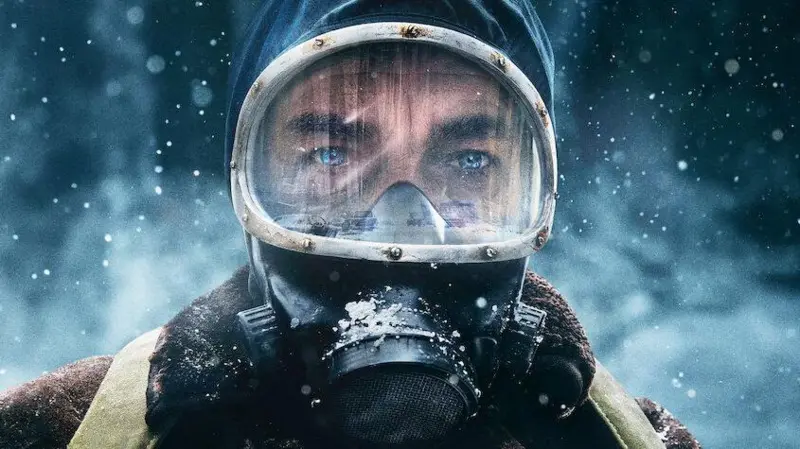Netflix uses AI for visual effects, utilizing it in their Argentine sci-fi show, The Eternauts, to create a building collapse scene more quickly and affordably. This move highlights the growing adoption of AI Models in entertainment, even amidst ongoing industry debates about their ethical implications and impact on human jobs.
Key Takeaways
- First-Ever Generative AI Use: Netflix has used generative AI for visual effects in an original series (The Eternauts) for the first time.
- Efficiency and Cost Savings: Generative AI significantly sped up the production of a complex visual effect, making it feasible for a show with a smaller budget.
- Industry Controversy: The use of AI in entertainment remains a contentious issue due to concerns about intellectual property rights and job displacement.
- Strategic Adoption of AI Models: Netflix’s embrace of AI for visual effects demonstrates a practical application of AI Models to enhance production capabilities.
The Dawn of AI in Netflix Productions
Netflix recently announced a significant milestone: the first-ever use of visual effects created by generative artificial intelligence in one of their original TV shows. This innovative step was taken in The Eternauts, an Argentine science fiction series, where AI was employed to generate a scene depicting a building collapsing.
How AI Models are Revolutionizing Visual Effects
Ted Sarandos, Netflix’s co-chief executive, highlighted that the use of these advanced AI Models allowed the production team to complete complex sequences much faster and at a lower cost. Specifically, the generative AI helped create the building collapse scene in Buenos Aires ten times faster than traditional special effects methods would have allowed. This kind of efficiency opens up new possibilities for shows with smaller budgets to achieve high-quality visual effects.
“The cost of it would just wouldn’t have been feasible for a show in that budget. That sequence actually is the very first [generative] AI final footage to appear on screen in a Netflix original series or film. So the creators were thrilled with the result,” said Mr Sarandos.
The Ongoing Debate: AI and the Entertainment Industry
The integration of generative AI into content creation is a hot topic, sparking considerable debate within the entertainment industry. A major concern revolves around the potential for AI to create content by using others’ work without their explicit consent, raising questions about intellectual property rights. Furthermore, there are widespread fears that AI could ultimately replace human jobs, leading to significant industry disruption.
These concerns were prominently raised during the Hollywood strikes in 2023. During a three-month walkout, the Screen Actors Guild–American Federation of Television and Radio Artists union advocated for stricter regulations concerning the use of AI in productions, aiming to protect the interests of human artists and creators.
Netflix Uses AI For Financial Performance and AI Integration
Alongside the AI announcement, Netflix reported a robust financial performance, with revenue rising by 16% to $11 billion (£8.25 billion) for the three months ending in June, compared to the same period last year. Profits also saw a significant increase, from $2.1 billion to $3.1 billion. The success of the third and final season of Squid Game, attracting 122 million views, contributed to these positive results. Netflix’s decision to leverage AI Models for visual effects is part of their broader strategy to innovate and optimize production processes, which in turn can contribute to their financial success.
FAQ about AI in Entertainment
What is generative AI and how is it used in visual effects?
Generative AI refers to AI Models that can produce new content, such as images, videos, and text, based on prompts or existing data. In visual effects, it’s used to create realistic scenes, characters, or objects, potentially saving significant time and resources compared to traditional methods.
What are the main concerns about using AI in the entertainment industry?
The primary concerns include the potential for AI to use copyrighted material without permission, leading to intellectual property disputes, and the fear that AI will automate tasks currently performed by humans, resulting in job losses for actors, writers, and visual effects artists.
How does Netflix’s use of AI affect production costs and speed?
According to Netflix, using generative AI can significantly reduce both the cost and time required for creating complex visual effects. For example, a scene that might take weeks and considerable expense with traditional methods could be completed in a fraction of the time and cost with AI, making advanced effects accessible to a wider range of productions.
- Generative AI Design Funding: Spacely AI Secures US $1M in Pivotal Round
- What Are AI Agents? AI Agents Explained
- Opendoor Technologies Stock Needs AI: The Future of iBuying Depends on Intelligent Tech
- Writing is Thinking: The Enduring Value of Human-Generated Scientific Writing in the Age of LLMs
- Protégé AI for UK Lawyers: 7 Powerful Ways It’s Transforming Legal Tasks

